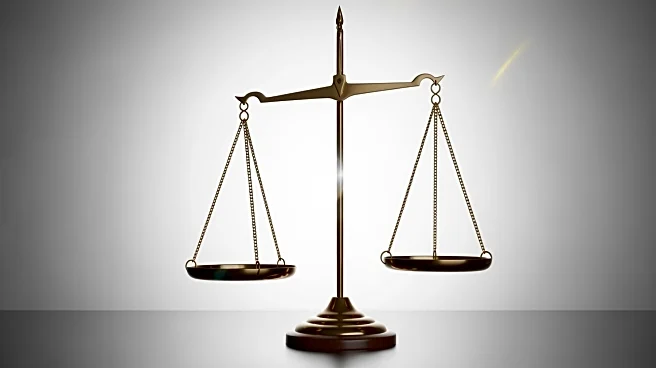What's Happening?
The Supreme Court has declined to hear a case brought by former Kentucky county clerk Kim Davis, who sought to overturn the court's landmark decision legalizing same-sex marriage. Davis, who gained national attention in 2015 for refusing to issue marriage licenses
to same-sex couples, argued that her religious beliefs should exempt her from complying with the court's ruling. Her case was seen as a significant test of the balance between religious freedom and civil rights. The rejection by the Supreme Court effectively upholds the previous decision, maintaining the legality of same-sex marriage across the United States.
Why It's Important?
The Supreme Court's decision to reject Kim Davis' appeal reinforces the legal standing of same-sex marriage in the United States, a significant civil rights milestone achieved in 2015. This decision underscores the court's commitment to upholding the rights of same-sex couples, despite ongoing debates about religious freedom and its limits. The ruling is a victory for LGBTQ+ advocates who have fought for equal marriage rights and serves as a precedent for future cases involving conflicts between religious beliefs and civil rights. It also signals to public officials that personal beliefs cannot override legal obligations, ensuring that civil rights are uniformly protected.
What's Next?
With the Supreme Court's decision, same-sex marriage remains legally protected, but the debate over religious freedom and civil rights is likely to continue. Advocacy groups on both sides may seek legislative or judicial avenues to address these issues further. Public officials and lawmakers might face pressure to clarify the boundaries of religious exemptions in civil duties. Additionally, this decision could influence similar cases in lower courts, shaping the legal landscape regarding religious freedom and civil rights in the future.
Beyond the Headlines
The rejection of Kim Davis' case highlights the ongoing cultural and legal tensions between religious beliefs and civil rights. It raises questions about how religious freedom is defined and protected in a diverse society. The case also reflects broader societal shifts towards greater acceptance of LGBTQ+ rights, challenging traditional views and prompting discussions about inclusivity and equality. As the nation grapples with these issues, the decision serves as a reminder of the evolving nature of civil rights and the role of the judiciary in shaping societal norms.
















